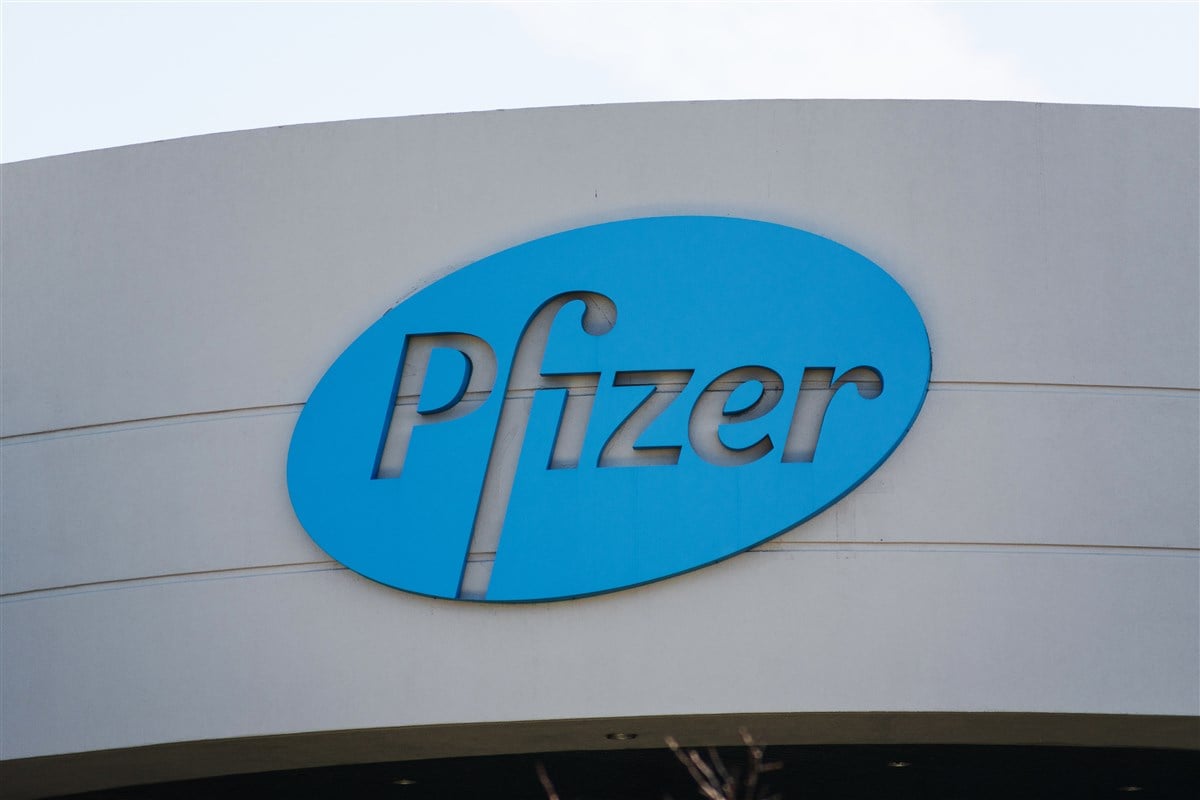
Key Points
- Pfizer faced a challenging 2023, marked by a significant 41.84% decline in its stock value as revenue for COVID-19 drugs fell faster than expected.
- The company anticipates full-year 2024 revenue to fall within the range of $58.5 to $61.5 billion, disappointing investors and analysts.
- The company's focus on acquisitions is slowing, and Pfizer is returning its focus to dividend increases and share buybacks.
- 5 stocks we like better than Pfizer
Investors who own Pfizer Inc. NYSE: PFE may have expected 2023 to be what football teams call a "rebuilding year." The company shifted its focus away from COVID-19 drugs and toward potential deals, share buybacks, and new treatments in its pipeline.
While rebuilding years are often messy, Pfizer's has been downright chaotic.
Pfizer stock is down 41.84% this year, putting it among the worst-performing pharmaceutical stocks within the Health Care Select Sector SPDR Fund NYSEARCA: XLV. Only Moderna Inc. NYSE: MRNA, also coming down from a COVID-19 medication sugar high, has performed worse in 2023.
Pfizer's situation took a turn for the worse as the company issued 2024 guidance that fell significantly short of what investors had expected.
Decline in Covid drug revenue
The company said it expects full-year 2024 revenue to be in the range of $58.5 to $61.5 billion, which includes approximately $8 billion in anticipated sales for COVID-19 drugs Comirnaty and Paxlovid. That number is well below analysts' forecast of $13.8 billion in combined sales for COVID-19 medications.
Pfizer's forecast also includes about $3.1 billion in anticipated revenue from cancer drug maker Seagen, whose $43 billion acquisition Pfizer completed on December 14.
The company issued earnings per share guidance in a range from $2.05 to $2.25, significantly below analysts' midpoint of $2.31 per share.
Shares gapped down nearly 7% in more than four times average volume after Pfizer issued its guidance on December 13. On the Pfizer chart, you can spot the downward trajectory that began in early 2022. The stock had a brief rally attempt in late 2022, but has been down for 11 out of 12 months in 2023.
Analysts slashed price targets
Pfizer analyst forecasts reveal that analysts at big investment banks UBS and Barclays, along with regional bank Truist, are lowering their price targets on Pfizer following the disappointing guidance.
There are bright spots, of sorts. For example, even with the company's earnings forecast coming in below Wall Street views, if Pfizer meets or beats its own guidance, that will represent a return to earnings growth after this year's decline.
Also, for investors looking for a well-established S&P 500 component with a high dividend yield and a track record of increasing shareholder payouts, Pfizer may not look so bad.
The Pfizer dividend yield is 5.94%, and it has a 14-year history of boosting the payout. That lands the company a spot on MarketBeat's list of dividend achievers.
Facing patent expirations
Another potential bright spot for Pfizer may be its pipeline, but analysts are split on this question. One routine event for pharmaceuticals is patent expiration, and Pfizer faces a number of those between 2025 and 2028, including best-selling medications to treat breast cancer and strokes.
Like other big pharma companies, Pfizer fills pipeline gaps through acquisition and its own research and development. In 2022, it made three acquisitions for a total value of $26 billion to gain access to treatments for ulcerative colitis, sickle-cell anemia and migraines.
Internally, Pfizer is working on treatments for the flu, meningitis, and respiratory syncytial virus, or RSV, as well as blood cancer, multiple myeloma, and atopic dermatitis. The company expects to generate $20 billion or more in sales by 2030 from its own research and development.
Focusing on buybacks, dividend increases
In May 2023, Pfizer indicated the era of big acquisitions was slowing down, and the company was returning its focus to share repurchases after pausing its buyback program in 2022.
CEO Albert Bourlas also said the company may be able to increase its dividend at a more rapid clip, with more cash freed up due to a smaller number of acquisitions.
Pfizer said it would increase its dividend on March 1, 2024, to 42 cents a share, an increase of 2.4% over the payment from the same period in 2023.
Before you consider Pfizer, you'll want to hear this.
MarketBeat keeps track of Wall Street's top-rated and best performing research analysts and the stocks they recommend to their clients on a daily basis. MarketBeat has identified the five stocks that top analysts are quietly whispering to their clients to buy now before the broader market catches on... and Pfizer wasn't on the list.
While Pfizer currently has a "Hold" rating among analysts, top-rated analysts believe these five stocks are better buys.
View The Five Stocks Here
Looking to avoid the hassle of mudslinging, volatility, and uncertainty? You'd need to be out of the market, which isn’t viable. So where should investors put their money? Find out with this report.
Get This Free Report